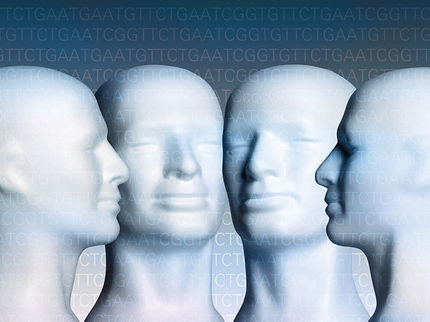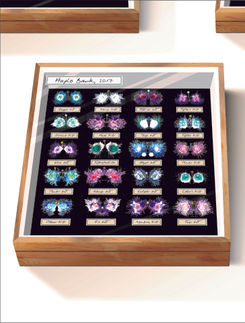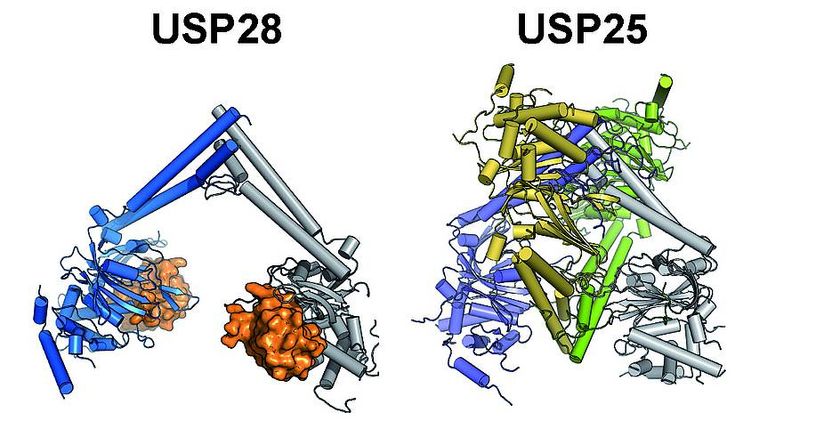Genetic testing could identify men at a 10-fold increased risk of testicular cancer
A new study of more than 25,000 men has uncovered four new genetic variants associated with increased risk of testicular cancer.
Testing for these variants combined with all 21 previously identified using genetic sequencing identified men with a 10-fold higher risk of testicular cancer than the population average.
The research, led by scientists at The Institute of Cancer Research, London, is the largest study to date of the genetics of testicular germ cell tumours - the most common cancer in young men.
Researchers discovered the four new variants through analysing the DNA of 6,059 patients with testicular cancer, and comparing it with the DNA of 19,094 people without the disease.
The sizes of the effects of some of the genetic variants associated with testicular cancer risk are quite high - compared with breast and prostate cancer, for example, where most variants each have only a very small effect. A man in the top one per cent of genetic risk had a five per cent lifetime risk of developing testicular cancer, more than 10 times higher than that of the average man.
There are no current treatment options that target specific genetic mutations in testicular cancer, and standard treatment with platinum-based chemotherapy has a high success rate. That means that the more likely application of genetic testing in testicular cancer is in diagnosing the level of risk in men yet to develop it, rather than in matching patients to specific treatments.
However, understanding the genetic variants underlying susceptibility to testicular cancer also helps us understand the biology of the disease, which may in due course inform development of new targeted therapies that could be effective in patients resistant to platinum chemotherapy.
Carrying two copies of a single-letter change in the DNA of chromosome 16 led to a 35 per cent increase in activity of the gene GSPT1 in men with testicular cancer, compared with those without. This gene has a role in controlling cell division and has been shown to have increased activity in cancers of the breast, stomach and prostate.
Dr Clare Turnbull, Senior Researcher at The Institute of Cancer Research, London, said:
"Our study identified four new genetic risk factors for testicular cancer. Through previous studies, many led by our team at the ICR, this brings the total number of genetic variants known to be associated with testicular cancer to 25.
"Applying these 25 variants, we found that men in the top one per cent for testicular cancer risk were at a more than ten-fold elevated risk of developing the disease compared with the average - although that still adds up to only around a five per cent (one in twenty) chance of developing testicular cancer.
"In the future, if we can identify more of the genetic variation underlying testicular cancer, this sort of testing might be used clinically to help identify those at most risk of testicular cancer before they develop the disease, such that we can offer measures to help stop them from developing testicular cancer."
Professor Paul Workman, Chief Executive of The Institute of Cancer Research, London, said:
"This important study not only adds more genetic risk factors to the list of those known for testicular germ cell tumours - the most common cancer in young men - but also adds detail to the emerging picture of testicular cancer as a strongly heritable disease.
"This study provides some evidence that genetic screening in selected groups of men could be a long-term possibility - in particular in first-degree relatives of patients, who we know are at greatly increased risk. We also need to look at this new genetic information and see if it can direct the discovery of new, more targeted treatments."
Original publication
Kevin Litchfield, Amy Holroyd, Amy Lloyd, Peter Broderick, Jérémie Nsengimana, Rosalind Eeles, Douglas F Easton, Darshna Dudakia, D. Timothy Bishop, Alison Reid, Robert A. Huddart, Tom Grotmol, Fredrik Wiklund, Janet Shipley, Richard S. Houlston & Clare Turnbull; "Identification of four new susceptibility loci for testicular germ cell tumour"; Nature Comm.; 2015
























































